Publications
Articles, publications, books, tools and multimedia features from the U.S. Institute of Peace provide the latest news, analysis, research findings, practitioner guides and reports, all related to the conflict zones and issues that are at the center of the Institute’s work to prevent and reduce violent conflict.
Question And Answer
Amid a Changing Global Order, NATO Looks East
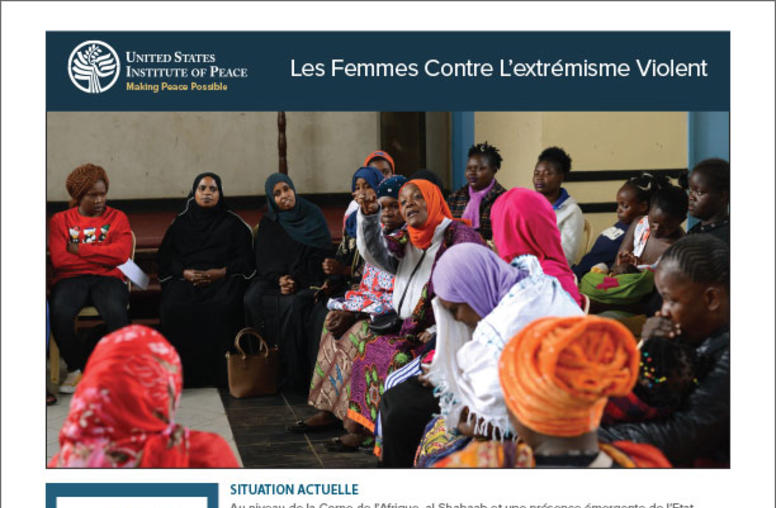
Women Preventing Extremist Violence (French)
Au niveau de la Corne de l’Afrique, al-Shabaab et une présence émergente de l’Etat Islamique ISIS ainsi que plusieurs autres groupes extrémistes sont toujours en place en Somalie, avec des recruteurs et des réseaux de facilitation s’étendant au-delà des frontières nationales et à travers la région. Au Sahel, d’innombrables communautés soufrent également de la violence extrémiste et terroriste perpétrée par différent acteurs dont certains appartenant à l’Etat islamique, d’autres étant affiliés Al-Qaïda et le reste tiré des mouvements dirigés localement.
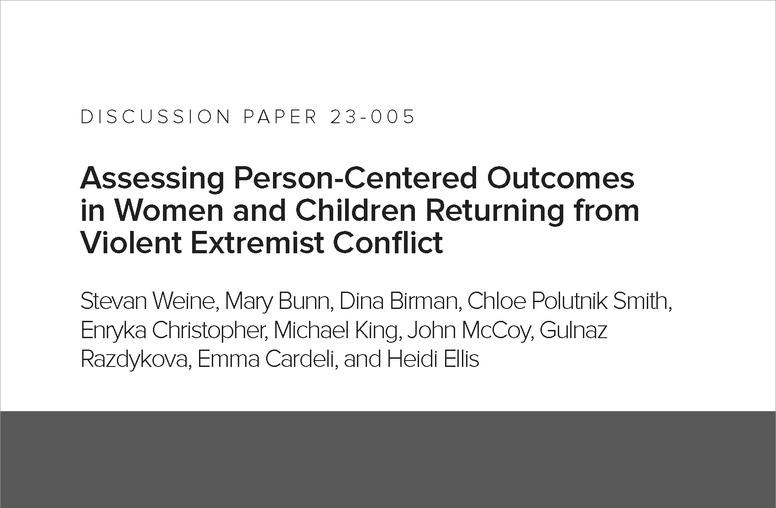
Assessing Person-Centered Outcomes in Women and Children Returning from Violent Extremist Conflict
This paper outlines a person-centered approach to outcomes based upon existing evidence and practice knowledge for use with returning women and children in rehabilitation and reintegration (R&R) programs. Being able to identify and assess outcomes, which are the intended accomplishments of these programs, are key for understanding change processes and developing strong programs. These programs should be able to assess and track key outcomes at multiple levels, including individual, family, community, and systems. However, little guidance currently exists regarding strategies for what outcomes should be assessed and how to do so.
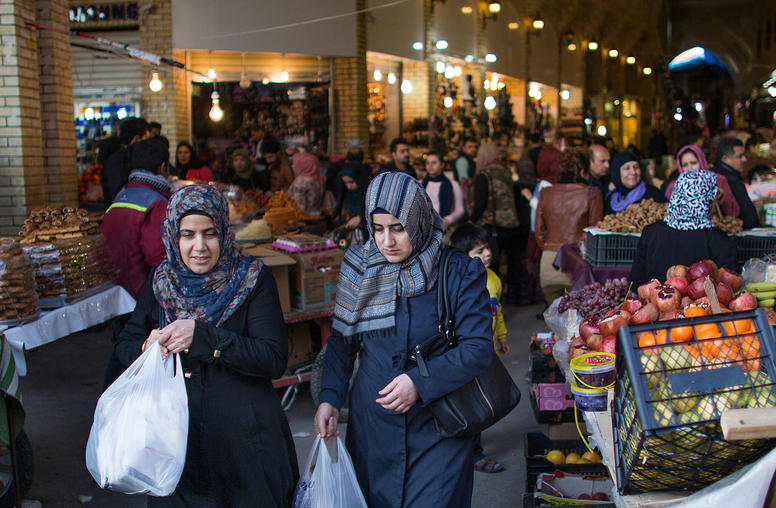
Reaching a Durable Peace in Afghanistan and Iraq: Learning from Investments in Women’s Programming
USIP recently partnered with New America to convene roundtable discussions with government, civil society, and humanitarian, development, and peacebuilding organizations to learn from the past decade of women’s programming in fragile states such as Iraq and Afghanistan. Based on these discussions, this report provides guidance for improving future programming to not only integrate the needs of women but also recognize the role women play in transforming violent conflict and sustaining a durable peace.

Belquis Ahmadi on the Afghan Peace Process
Reflecting on recent conversations in Doha and Kabul, USIP’s Belquis Ahmadi says that Afghans told her they want peace, but are not willing to sacrifice the hard-won gains of the last 18 years to get there. As U.S.-Taliban talks move forward, the extent of the Taliban’s evolution on issues like women’s rights remains in question. “I’ll believe it when I see it,” says Ahmadi.
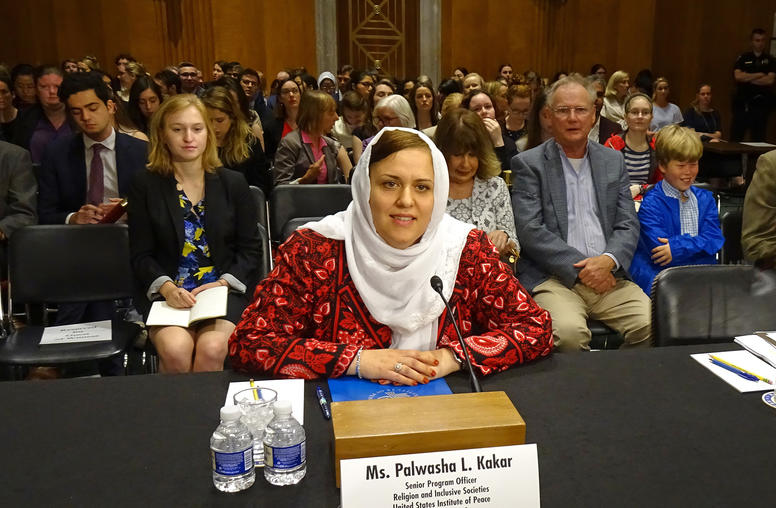
Women in Conflict: Advancing Women’s Role in Peace and Security
Palwasha Kakar, senior program officer for religion and inclusive societies, testified on June 13 at the Senate Foreign Relations Subcommittee on Western Hemisphere, Transnational Crime, Civilian Security, Democracy, Human Rights, and Global Women’s Issues' hearing on "Women in Conflict: Advancing Women's Role in Peace and Security.” Her expert testimony as prepared is presented below.

Kathleen Kuehnast on Women in Conflict Zones
At a recent USIP event, Nobel laureate Nadia Murad discussed her efforts to end sexual violence and human trafficking—two criminal practices that Kathleen Kuehnast says “have been institutionalized and militarized.” To disincentivize these human rights abuses, Kuehnast says we must reinforce that these heinous but often lucrative practices are “not a livelihood—this is criminality.”

Belquis Ahmadi on Afghan Women and the Peace Process
Since 2001, Afghan women have assumed larger roles in society—becoming teachers, doctors and government officials. With intra-Afghan talks expected to begin this month, USIP’s Belquis Ahmadi says it’s important the Taliban “accept the reality that today’s Afghanistan is very different from the country they ruled” when it comes to women’s rights.
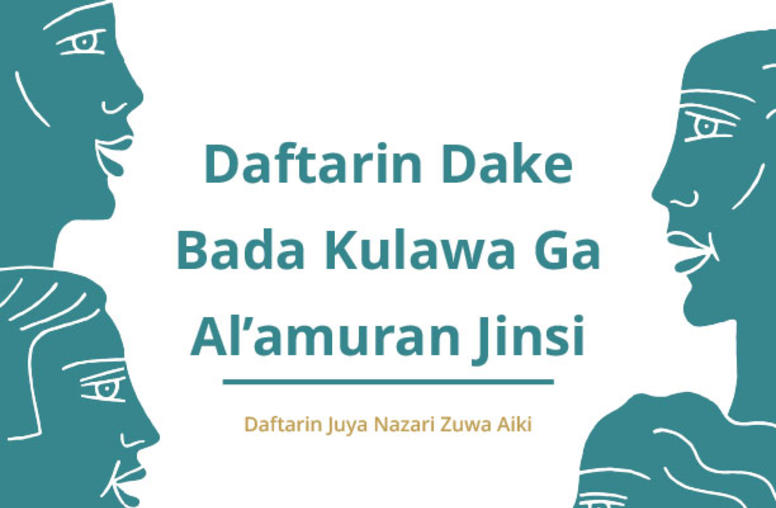
Gender Inclusive Framework and Theory (Hausa)
Daftarin da ke bada kulawa ga jinsi kundi ne da akayi nazari a tsanake wajen samar da shi da zai saukaka yadda za’a rika bada kulawa tare da amfani da al’amuran da suka shafi jinsi yayin tsara wani shiri ko aiki. Saboda aikin samar da zaman lafiya ya dogara da nazartan al’amarin da yake dubawa, daftarin da ke bada kulawa ga jinsi ya gabatar da hanyoyi uku na nazartan al’amuran da suka shafi jinsi-mata, zaman lafiya da tsaro; halaye da dabi’un maza na kwarai; da asali ko alamomi da suka hadu da juna-an samar da su da nufin fuskantar al’amuarn jinsi dan kyautata tsara shirye-shiryen jaddada zaman lafiya.
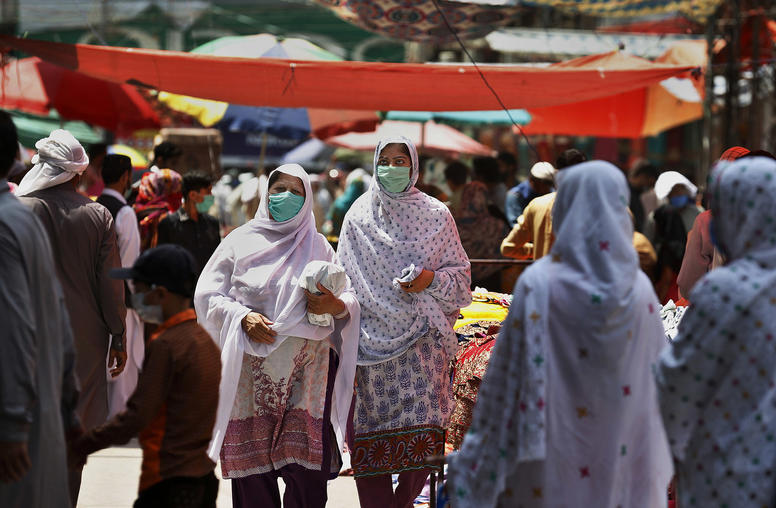
Gender-Based Violence and COVID-19 in Fragile Settings: A Syndemic Model
The long-standing pandemic of gender-based violence has been worsened by COVID-19 and related containment measures, particularly in fragile settings marked by conflict, poverty, and weak infrastructure. At the same time, the implementation of gender-insensitive COVID-19 control policies can exacerbate the community transmission of COVID-19. These interactions form a syndemic—two or more pandemics whose interactions compound the severity of each. This report identifies the key avenues through which these two pandemics have synergistic effects and offers recommendations for mitigating their impact.
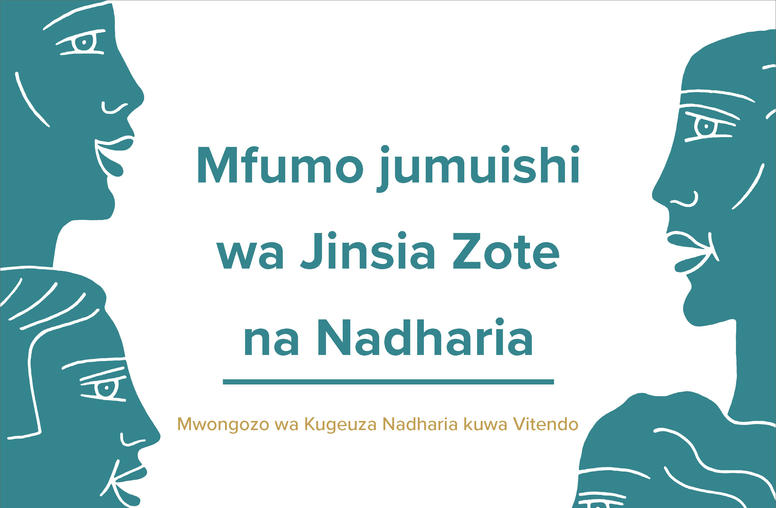
Gender Inclusive Framework and Theory (Swahili)
Mwongozo wa Nadharia na Mfumo wa Kujumuisha Jinsia Zote (GIFT) ni njia rahisi na zana ya kina inayowezesha kujumuisha uchambuzi wa kijinsia katika uundaji wa mradi. Kwa sababu kazi ya kudumisha amani inategemea muktadha, GIFT inaweka mbele njia tatu za uchambuzi wa kijinsia-mtazamo wa Wanawake, Amani na Usalama; mtazamo wa Uume wenye Amani; na mtazamo wa Utambulisho Ingiliani-ambazo zote zinaangizia mabadiliko ya kijinsia katika mazingira fulani ili kutengeneza vyema miradi ya kudumisha amani.